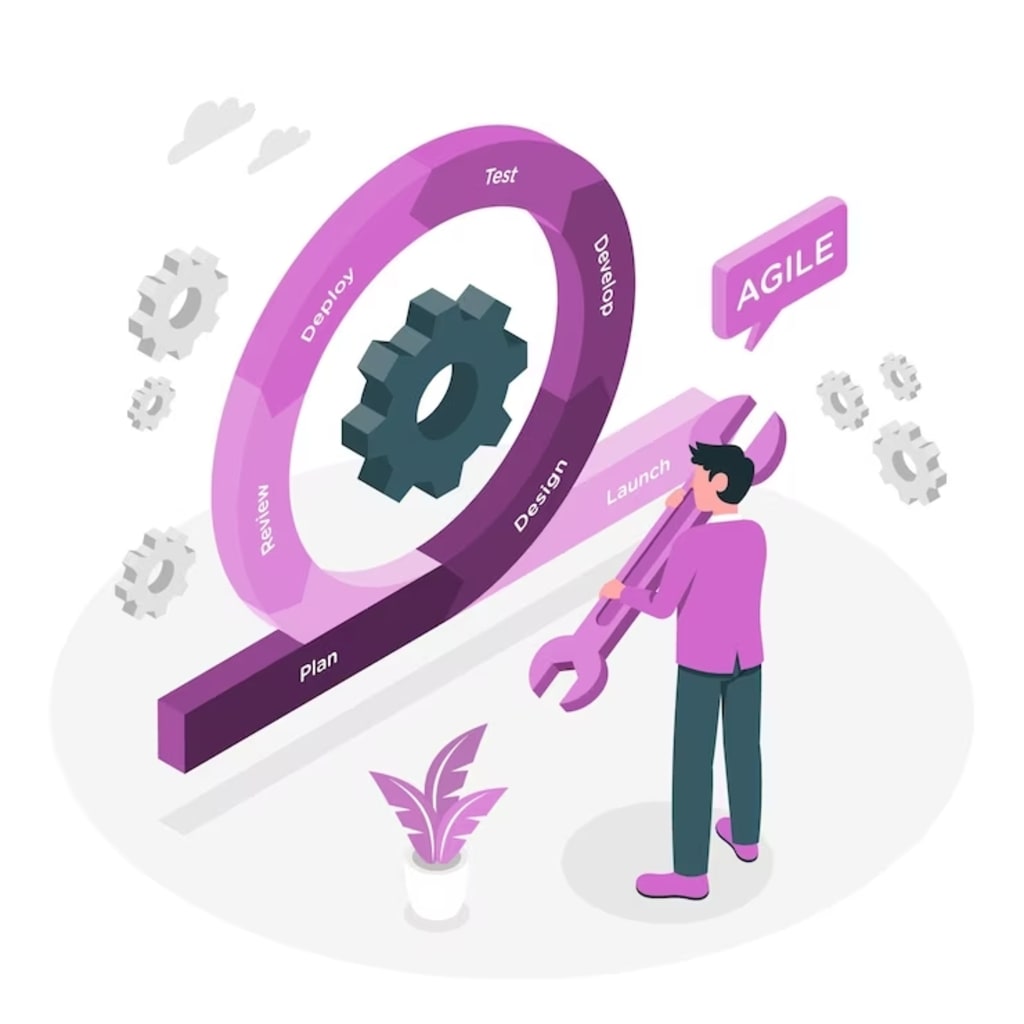Is Agile a Framework or Methodology?
Decoding the Nature of Agile in Project Management

Is Agile a Framework or Methodology? Decoding the Nature of Agile in Project Management
Introduction:
In the realm of project management, the term "Agile" has become ubiquitous, synonymous with adaptability, flexibility, and iterative development. Agile approaches have revolutionized how teams tackle complex projects, enhancing efficiency, collaboration, and customer satisfaction. However, a debate continues to persist over whether Agile should be classified as a framework or a methodology. In this article, we will delve into the characteristics of Agile, its principles, and its practical applications to determine its true nature.
Defining Agile:
Agile is a philosophy that advocates for a customer-centric, iterative, and incremental approach to project management. It values collaboration, customer feedback, and embracing change throughout the development process. The Agile movement was born in response to traditional project management methodologies, like the Waterfall model, which often suffered from rigid plans, long development cycles, and lacked responsiveness to changing requirements.
Agile emphasizes the early and continuous delivery of valuable software or products, with each iteration building on previous ones. The Agile Manifesto, published in 2001 by a group of software developers, outlines the core values and principles that define the Agile mindset.
The Agile Manifesto Values are:
Individuals and interactions over processes and tools
Working software over comprehensive documentation
Customer collaboration over contract negotiation
Responding to change over following a plan
Agile Methodology:
Agile methodologies are concrete implementations of the Agile principles in specific project management practices. The most popular Agile methodologies include Scrum, Kanban, Extreme Programming (XP), Lean, and others. Each methodology offers a set of roles, ceremonies, and artifacts that guide teams through their Agile journey.
Scrum: Scrum is a widely adopted Agile methodology, especially in software development. It divides the development process into fixed-length iterations called "sprints," typically lasting two to four weeks. Teams organize daily stand-up meetings, sprint planning, sprint review, and sprint retrospective to ensure continuous progress.
Kanban: Kanban is a visual management system that focuses on flow and efficiency. It uses a Kanban board to visualize work items and their status. Teams manage work by limiting the number of items in progress to maintain a steady flow.
Extreme Programming (XP): XP emphasizes technical excellence, continuous integration, test-driven development, pair programming, and regular releases. It is particularly suitable for projects with rapidly changing requirements.
Agile Framework:
While some people refer to Agile as a methodology, others argue that it is more accurately described as a framework. The distinction lies in the level of prescription and adaptability.
A methodology typically provides a rigid set of practices and guidelines to follow. In contrast, Agile offers guiding principles and values without specifying exactly how to implement them. Agile frameworks allow teams to adapt their processes according to the unique needs of their projects and organizational culture.
Conclusion:
In conclusion, the term "Agile" encompasses both a framework and a set of methodologies. At its core, Agile is a philosophy based on the values and principles outlined in the Agile Manifesto. It emphasizes flexibility, collaboration, and customer-centricity in project management.
Agile methodologies, on the other hand, are specific implementations of Agile principles, offering more concrete practices and ceremonies to guide teams. Scrum, Kanban, XP, and other Agile methodologies provide structured approaches to deliver value iteratively and incrementally.
Embracing Agile, whether as a framework or a methodology, has proved transformative for organizations across various industries. It allows teams to be more responsive to change, deliver value faster, and maintain a focus on customer needs throughout the project lifecycle. In the end, the decision to adopt Agile as a framework or methodology depends on the unique requirements and goals of each project and organization.
With 11+ years of experience in the field, Leanpitch has successfully upskilled 90,000+ people across 12+ countries. Explore our website, Our trainers are internationally acclaimed for their insightful and experiential training.
We upskill and boost your career by providing a wide range of courses such as CSPO Certification, CSM Certification, ICP-ACC Certification, etc. Visit our website to learn more about all the courses we offer.





Comments
There are no comments for this story
Be the first to respond and start the conversation.